Within a mere two weeks, Sarah Abua, 34, and resident of Gulu City in Northern Uganda, experienced an unfathomable sequence of tragic events.
She lost her husband, had a stillbirth, and went into a coma for cardiac arrest, just between the 26th December 2021 and 7th January 2022.
“At that point, I wondered, how can God decide to distribute problems unevenly? How can all this torment be directed at me? I started doubting the very God I believed in!” Abua recollects.
The weight of these devastating events drove her into a long period of stress, throwing her into depression.
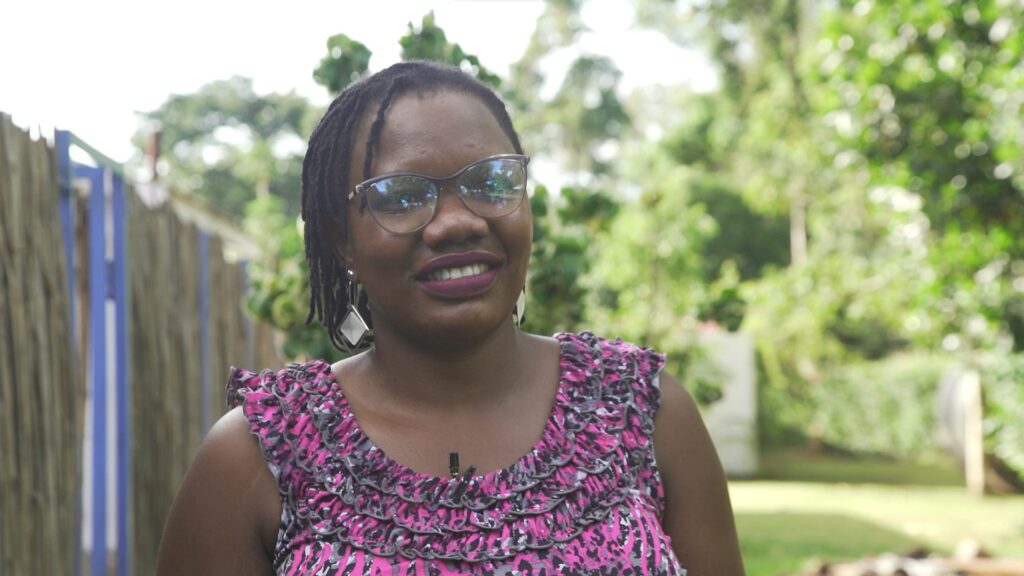
Sarah Abua speaks to Solutions Now Africa outside a music session on the outskirts of Gulu City. PHOTO by Richard Mugambe
Abua’s mental health challenges may be rightly judged as isolated and typically a personal one-off issue. However, it is one in a sea of soaring cases of mental unwellness in her hometown and the entire Northern Uganda.
The region is rebuilding from the rabble of the Lord’s Resistance Army (LRA) insurgency hence the high rate of Post-Traumatic Stress Disorder presently.
“We have gone through trauma, and disruption. So, mental illness is increasingly visible in this region compared to other places because of our history of disrupted livelihoods. So you will realize that a good number of people are dysfunctional because of that uncertainty,” says James Okello, a psychiatrist and senior lecturer at Gulu University.
The LRA war spurned for two decades and was responsible for over 100,000 deaths, the abduction of between 60,000 to 100,000 children, and the displacement of as many as 2.5 million civilians between 1987 and 2012, according to the United Nations.
Alcohol abuse has been cited as a form of copying mechanism for internally displaced persons.
In fact, a 2015 research by the Mental and Psychiatry Department of Gulu University and Makerere University, it was discovered that people from the Northern region were twice more likely to abuse substances than those from Central Uganda.
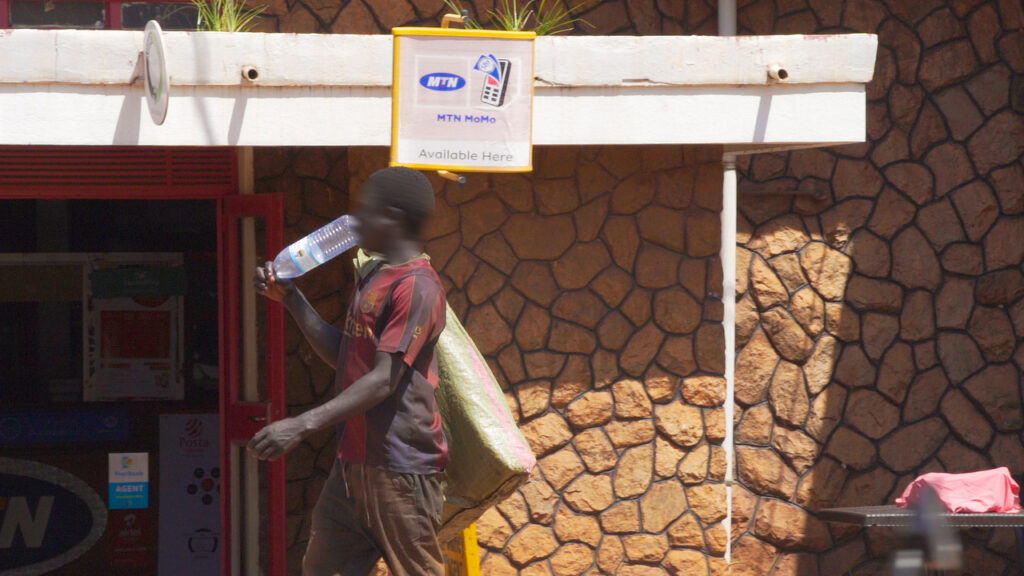
A mentally unwell man walks past shops along Awere Street in Gulu City. PHOTO by Richard Mugambe.
The soothing tenor
Five years ago, Benjamin Komagum alias Spartos was struggling with alcohol addiction and depression on the streets of Kampala. The Gulu City-born vocalist would later return home after life had taken a toll on him.
On resettling home, he found that his challenge mirrored that of the young people in the city. He then summoned his vocal prowess.
The opening lyrics of his 2016 single “My Depression” go, “Is somebody here? Can somebody hear me out? I am just stuck in my own depression…”
In this musical piece, Spartos, based on his real-life story, addresses the challenges of withdrawing from drug addiction and the mental anguish that young people experience while attempting to rebuild their lives.
The song narrates the tale of a young individual struggling with substance addiction, wondering if anyone is paying attention to their plight. It serves as a heartfelt expression of someone caught in the grip of addiction, unsure of how to seek help or whom to approach.
Spartos further explains, “You don’t know whom to confide in regarding your struggles. You are uncertain if they will offer assistance or mock you.”
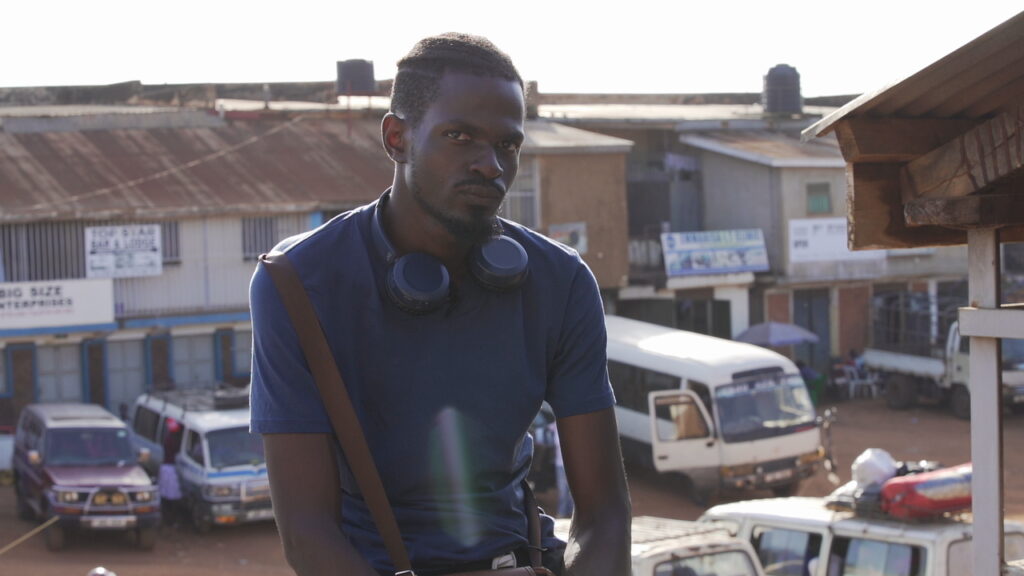
Benjamin Komagum aka Spartos sits on the pavement of Andrea Olal road in Gulu City. PHOTO by Richard Mugambe.
‘Steam releasing sessions”
Every month, Spartos organizes gatherings, where young individuals come together to share common challenges and find solace in music. These sessions serve as a safe space for individuals to open up about their struggles, offering a supportive environment where they can find comfort and understanding.
The sessions are punctuated by themed musical performances, where he sings his own music and other related pieces, like Cameroonian-born Libianca’s popular single People and Flashlight by English singer Jessie J common on the fixture.
“The purpose is to give the attendees a feeling that somebody cares. Somebody is indeed noticing you and would love to help,” Spartos explains.
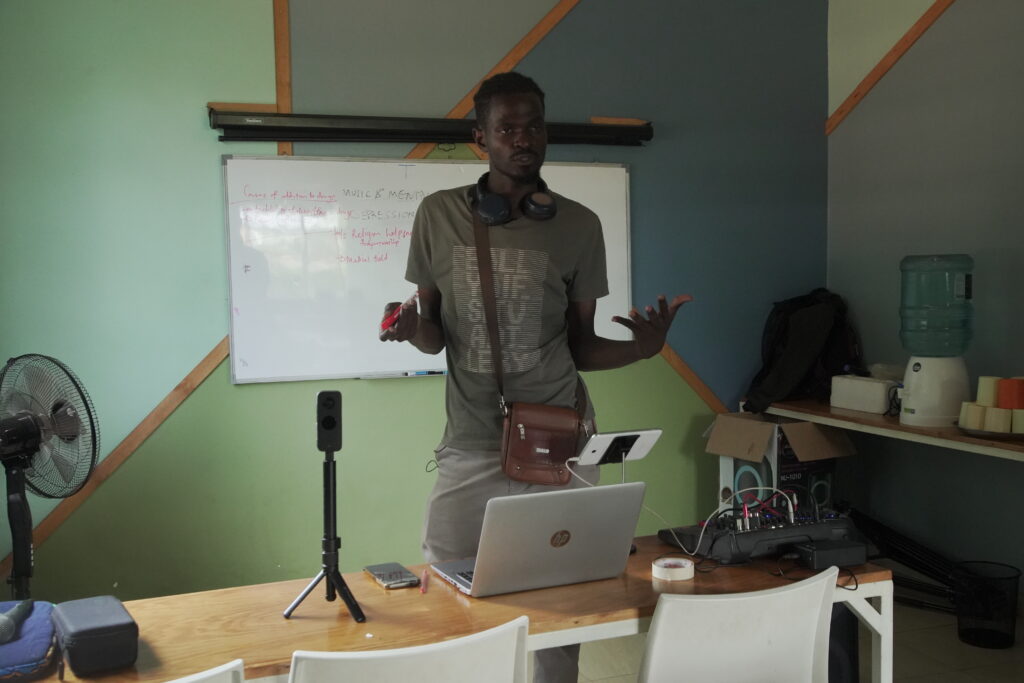
Benjamin Komagum conducts conducts a talk therapy session for young people on the outskirts of Gulu City. PHOTO by Richard Mugambe.
The redemption
Sarah Abua is neither a drug nor alcohol abuser but her personal struggles drew her into joining these sessions in December 2022.
“For me, I don’t care what has caused the depression. I share this room with people with completely different challenges but with the same condition. They vent out their frustration, I vent out mine, and it feels mutual and relatable, with each story shared in these sessions,” explains Abua.
Sarah was introduced to Spatos’ mental health sessions by a friend. She was uncertain of what to expect but willing to try anything that might bring her solace.
“Three months into it, it didn’t feel lonely anymore. I had become part of a new family and we had even formed a Whatsapp group where we shared daily to support each other to avoid relapse. Against my doctors’ advice, I slowly left anti-depressants and I don’t regret that decision,” Sarah Obua beamingly shares.
Over 100 youth who are battling different mental health challenges have benefitted from Spartos’ effort.
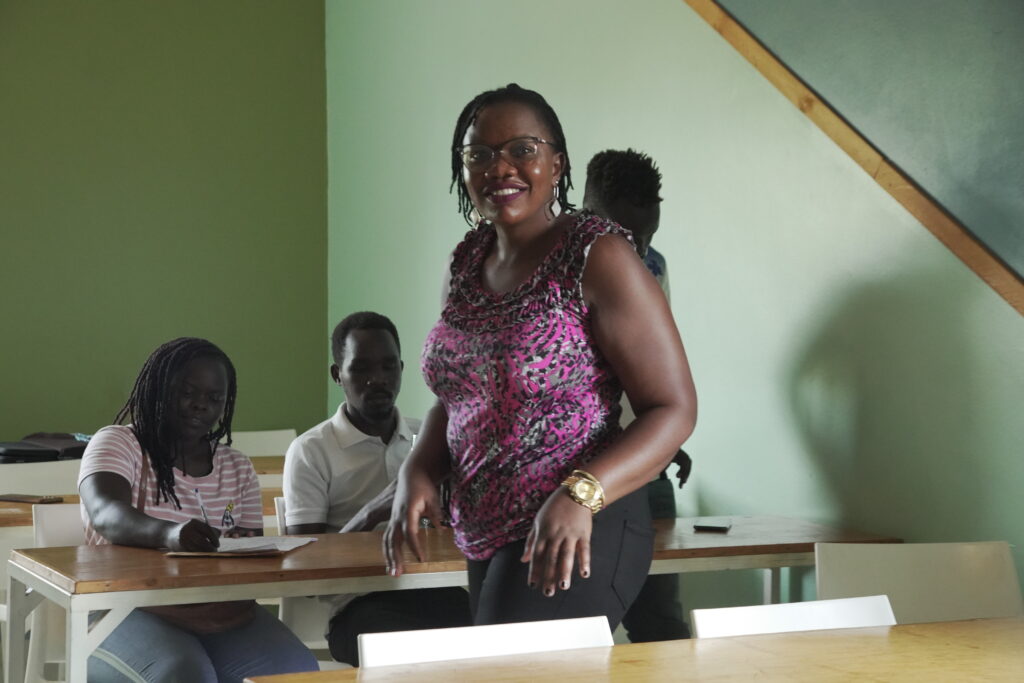
Sarah Abua shares with other participants during a talk therapy session conducted by Benjamin Spartos Komagum. PHOTO by Richard Mugambe.
Music as a form of therapy? Does it work?
In a 2021 research published by The National Library of Medicine, titled ‘Music, mental health, and Immunity’, music was described as something ‘beyond entertainment’. It was described as an aid in the reduction of anxiety and agitation in older adults.
“Music is cost-effective. We all naturally respond to music. Music usually gives you an opportunity for action. We usually talk of action techniques as an approach to therapy. Music gives you an opportunity for drama. You can act out certain things as you listen to music,” remarks Dr. James Okello a psychology academician at Gulu University
In Uganda, as well as in many other contemporary African societies, music, alcohol, and drugs have intertwined their existence within the same dwelling.
The spotlight has long been cast upon industry leaders who have been accused of promoting these substances, and it is also ‘public knowledge’ that most of these musicians themselves are stuck in the dark world of addiction.
For Spartos, it evolves into a shrewd mission in which he utilizes the “enemy” to vanquish another adversary.
Recent News
© 2022 - Media Challenge Initiative | All Rights Reserved .


